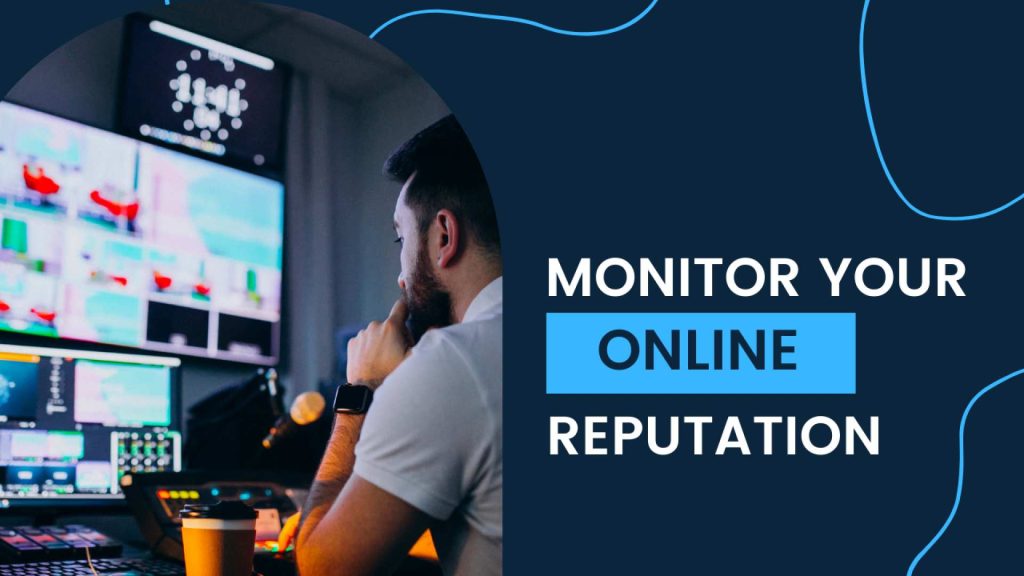The Impact of Social Media on Online Reputation Management (ORM)








The Impact of Social Media on Online Reputation Management (ORM)
The Impact of Social Media on Online Reputation Management (ORM)
Social media has fundamentally reshaped how individuals, brands, and businesses manage their online reputation. With billions of users interacting daily, these platforms serve as a global stage where public perception can change rapidly. Understanding the influence of social media on online reputation and implementing effective strategies for ORM is crucial in today’s digital world.
1. Social Media Magnifies Public Perception
Why It Matters: Social media platforms amplify user opinions and experiences, making it easier for feedback—both positive and negative—to spread widely and quickly.
Impact:
- Viral Content: A single post or tweet can go viral, impacting a brand’s reputation overnight.
- Customer Feedback: Social media serves as a channel where customers share their experiences, making it a focal point for public sentiment.
- Influence of User-Generated Content: Content created by users (e.g., reviews, posts, comments) shapes the public narrative around a brand or individual.
Strategies:
- Monitor Mentions in Real Time: Use tools like Mention, Hootsuite, or Sprout Social to track and respond to mentions promptly.
- Encourage Positive Stories: Motivate satisfied customers to share their positive experiences on social media.
2. Two-Way Communication and Instant Feedback Loops
Why It Matters: Social media enables direct engagement between brands and their audience, creating opportunities for dialogue but also potential reputational risks.
Impact:
- Immediate Reactions: Consumers expect rapid responses to questions and complaints.
- Public Accountability: Positive and negative interactions are visible to other users, impacting public perception.
Strategies:
- Timely Responses: Respond quickly to comments and messages to show attentiveness and care.
- Tone Management: Use a consistent and professional tone in all responses while adapting to the context and platform culture.
- Be Transparent: Acknowledge mistakes openly and explain how you’ll rectify issues to demonstrate accountability.
3. Influencer and Peer Reviews Have Significant Influence
Why It Matters: Social proof, in the form of influencer endorsements or user reviews, has a powerful effect on brand reputation on social media.
Impact:
- Influencer Partnerships: A positive mention from a respected influencer can boost credibility, while negative feedback can harm trust.
- Review Visibility: Consumers often rely on social media recommendations and reviews to make decisions.
Strategies:
- Partner with Relevant Influencers: Collaborate with influencers who align with your brand values to enhance positive visibility.
- Engage and Reward Loyal Advocates: Encourage and reward customers who advocate for your brand on social platforms.
4. Crisis Management Is More Challenging Yet Crucial
Why It Matters: Social media crises can escalate rapidly, requiring fast and effective management to prevent long-term reputational damage.
Impact:
- Speed of Escalation: Issues can spread and gain traction rapidly due to the viral nature of social media.
- Public Scrutiny: Social media puts crisis responses under intense public scrutiny, making it vital to react appropriately.
Strategies:
- Crisis Response Plan: Develop a crisis communication plan to outline roles, responses, and escalation procedures.
- Acknowledge Issues Quickly: Provide a timely and transparent response to concerns, outlining your actions.
- Listen and Adapt: Monitor feedback and be prepared to make further adjustments as necessary.
5. Consistency Across Channels Is Key
Why It Matters: A consistent message and brand voice across social media platforms build trust and reinforce positive perceptions.
Impact:
- Unified Presence: Mixed messages across platforms can confuse and alienate your audience.
- Brand Identity: Consistency helps build a recognizable and trusted brand identity.
Strategies:
- Maintain Branding Standards: Use consistent language, visuals, and tone across social platforms.
- Coordinate Messaging: Synchronize social media campaigns and responses across different teams to avoid inconsistencies.
6. Proactive Reputation Building Through Content
Why It Matters: Building a positive reputation on social media isn’t just about reacting; it’s also about being proactive.
Impact:
- Control the Narrative: Proactive, positive content helps shape the perception of your brand.
- Authentic Engagement: Consistently creating authentic and valuable content builds credibility over time.
Strategies:
- Post Regular, High-Quality Content: Share valuable, engaging, and relevant content that resonates with your audience.
- Highlight Positive Stories: Share testimonials, case studies, and community involvement initiatives.
- Use Social Listening: Identify and engage with conversations relevant to your industry to establish authority.
7. Monitoring and Analytics Drive ORM Efforts
Why It Matters: Analytics and social listening tools provide critical data to understand public perception, track brand sentiment, and guide strategy.
Impact:
- Real-Time Sentiment Analysis: Tools analyze the tone of mentions, providing insight into audience perception.
- Trend Tracking: Track hashtags, keywords, and conversations to understand trends relevant to your brand.
Strategies:
- Set Alerts: Use tools like Brandwatch, Sprout Social, or Social Mention to receive notifications about mentions or sentiment shifts.
- Adapt Strategies Based on Data: Regularly review analytics and adjust your social media approach to optimize engagement and perception.
Conclusion
Social media is a powerful force in shaping public perception and offers significant opportunities for reputation management. To build and maintain a positive online reputation, businesses and individuals must adopt proactive strategies, maintain consistency, foster authentic engagement, and respond quickly and effectively to crises. By actively managing social media interactions and leveraging analytics, you can shape how you are perceived, build trust, and foster long-term positive relationships with your audience.
#ReputationManagement #ReputationStrategies #CrisisManagement #ORM #OnlineReputation #ReputationMonitoring #PositiveReputation #BrandBuilding #ReputationTips #CrisisResponse #ReputationGrowth #OnlineMonitoring #BrandTrust #ReputationRepair #DigitalReputation #OnlineReputation #ReputationManagement #BrandReputation #ORM #DigitalReputation #OnlinePresence #ReputationBuilding #CrisisManagement #BrandImage #CustomerReviews #SocialMediaReputation #ReputationTips #ReputationStrategy #BuddyInfotech #Adindia360 #TolidayTrip https://buddyinfotech.in

